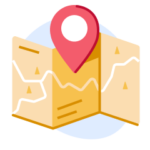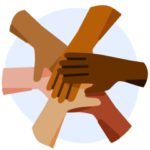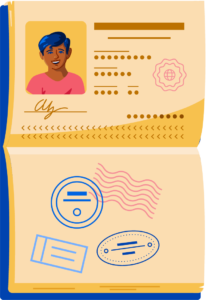Getting a part-time job while studying abroad is a great way for international students to gain experience and support themselves. But interviews can be scary, especially when the country where you’re studying has different customs and workplace cultures than what you’re used to. Below, we’ll share important job interview tips for international students. These strategies can give you the confidence you’ll need to navigate the interview process and boost your chances of getting a job.
Are you looking for work? Here’s how to stand out at campus job fairs.

Research and Preparation
Before your interview, it’s important to do some research:
- Learn what the company does, what they value, and any recent achievements
- Find top skills and qualifications they’re looking for
- Read what the company culture is like (official social media channels, blogs, and sites like Glassdoor are good places to start)
- Look up the people who are interviewing you on LinkedIn to help you find common ground during the interview
- Know what you’d like to know more about. Prepare 2-4 questions to ask your interviewer.
Prepare answers for common interview questions. Practice talking about your experiences, strengths, and goals. Be honest—you don’t have to avoid talking about challenges, but speak about them from the angle of how you responded constructively. For example, if you struggled with a classmate when working on a team project, talk about how you were able to fix the issue and get the work done.
Looking for support? Reach out to your college or university’s career services office, or do practice interviews with a friend or family member. In any case, practice your answers out loud at least once. You’ll be less nervous if you’ve said the words before.
Working part-time in your field can supercharge your time as an international student. Learn more on our blog.

Set Up Your Route or Space
Are you traveling in person to the interview site? Plan out how you’ll get there. If you’re driving, fill the gas tank a day or two before your interview, and check traffic reports before you leave. If you’re walking or taking transit, look out for construction or transit delays. No matter how you’re traveling, give yourself extra time to arrive. You should get there with a few minutes to spare, in case parking is challenging or you need to wait for an elevator.
It’s also wise to prepare for phone interviews or video interviews, even though you won’t be commuting. Have a glass of water at hand and check your wifi strength before joining the call. Plus, have a pen and paper or your favorite note-taking app ready.
Tip: If you choose to use a note-taking app, tell the interviewer you’ll be taking notes digitally. That way, they won’t think you’re doing something else during your interview.

Understand Cultural Differences
Different cultures have different expectations for job interviews. It’s important to know what’s appropriate in the country where you’re applying for a job. Good things to know include how to dress (lean a little more formal than the job you’re applying for), how to greet people, and how to act during the interview.
For example, in North America, Australia, and many parts of Western Europe, it’s important to use eye contact when your interviewer is speaking. It’s seen as a sign of engagement and respect. But in other cultures, like those of Japan or Korea, that approach is too direct, even invasive. Being aware of these differences and adjusting your behavior shows that you understand and respect different cultures.
Also, as Australian recruiting firm Robert Walters notes, it’s wise to “treat everyone you meet as your interviewer … From greeting the receptionist, to the people you share a lift with … These are all touchpoints with your potential future employer, and co-workers often share their impressions of visitors afterward.” Treat everyone with professionalism and kindness to make a great first impression.
Pro Tip: Many in-person interviews begin with a handshake. If you’re offered a glass of water before the interview, hold it in your left hand, so when you shake (with your right hand) your hand isn’t damp or cold!

Showcase Transferable Skills
Even if you don’t have direct experience in the job you’re applying for, you can still show you have skills that are useful in any job. These abilities are called transferable skills or “soft skills.” Important examples include communication, teamwork, problem-solving, and time management.
During the interview, give specific examples of how you’ve used these skills. Talk about times when you worked well with others, solved problems, or balanced your time effectively. Showing that you have transferable skills will help employers see that you can be a valuable asset to their team.
Read more about the top technical and knowledge (hard) skills and transferable (soft) skills today’s employers are looking for.

Highlight Your International Experience
As an international student, you have unique experiences that will help you stand out in an interview. Talk about your time studying abroad and how it’s helped you develop important personal and professional skills. Employers like people who bring new perspectives to their work, and who can navigate different cultures.
Plus, in some roles, the ability to speak more than one language (as many international students do!) can open new career paths.
During the interview, share how you’ve worked well with people from different backgrounds. Talk about problems you have solved and how you’ve adapted to new situations. These stories will show that you can be successful in a diverse workplace.
Studying abroad can boost your career in many ways, from building your network to expanding your comfort zone.
Interviews can be challenging for everyone. However, with these job interview tips for international students, you’ll be well-prepared. Remember to do your research, plan ahead, understand cultural differences, highlight your international experience, and showcase your transferable skills. And always, stay confident, be yourself, and keep a positive attitude.
Good luck with your job interviews!
Looking for guidance along your study abroad journey? Contact the ApplyBoard team; we’re here to help.



